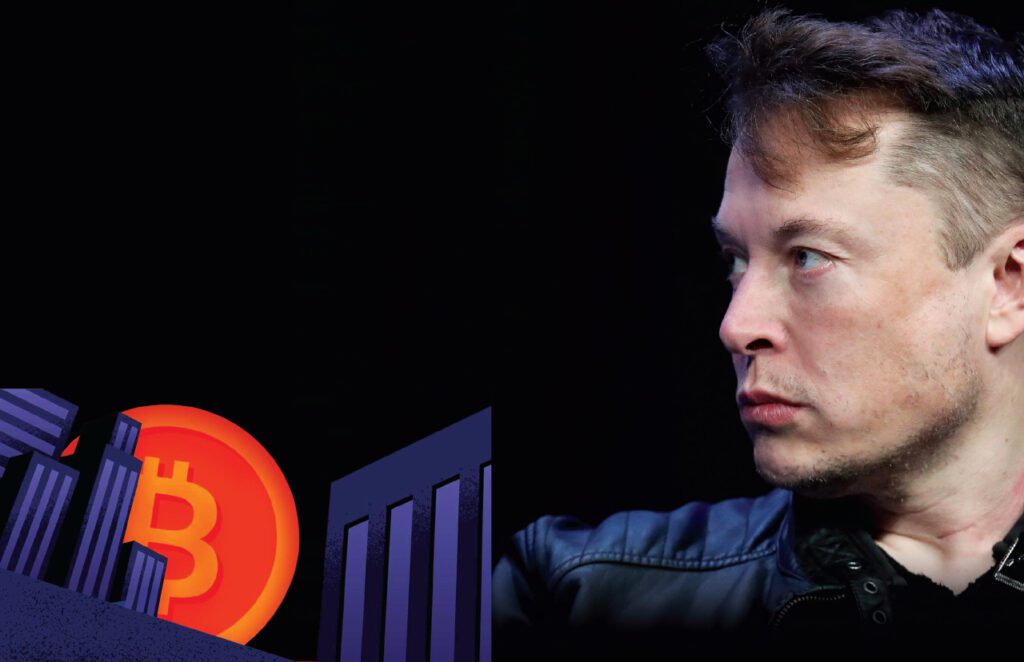Cryptocurrency has left experts polarized, from some claiming it to be the biggest innovation since the internet to others believing it to be an illegal bubble that will burst at any given moment.
Vitalik Buterin just landed in Moscow. Having appearing on CNBC just a few days prior, the 23-year-old has arrived in Moscow to give a talk. A chauffeured Mercedes picks him up to take him to the venue. As he steps out of the car, throngs of adoring admirers swarm around him. Inside, Vitalik gives a moving talk, earning him a standing ovation. He doesn’t have time to linger, though. He has to prepare for a meeting with representatives of the central bank. One would assume a 23-year-old would be intimidated by the prospect, but for Vitalik, it’s not his first waltz with the big guns. He has met with government and central bank officials from UK, Australia, Thailand amongst several other national authorities. However, something did happen on this particular trip which rattled the scrawny, young adult. Vitalik was informed that Vladimir Putin had summoned him. Putin, one of the most powerful men on the planet, had a one-on-one with this enigmatic 23-year-old. So, what makes this man so sought after? Is he a celebrity of some sort? Maybe a world-famous athlete or perhaps a scientist? Nada. He is none of these. Vitalik Buterin is the inventor of Ethereum, the most powerful cryptocurrency after Bitcoin.
Picture this. You search for something online, visit a certain website or, at times, even talk about something with your friends. Next thing you know you start getting ads about it. You can’t shake the feeling that you’re being watched by banks, governments, marketers or even service providers. We’ve all been there. With the advent of technology, information sharing became much easier. However, it came at a cost. An unforeseen increase in surveillance and regulation. In the contemporary digital world, most traditional transactions online are traced and regulated. Although, this has its advantages, it has left a substantial number of people feeling over-scrutinized, with the state being aware of their every financial move. Escaping that was the promise of the first cryptocurrency. The enigmatic ‘Bitcoin’.
It was cash, but not printed. Not monitored by a central authority but by normal internet citizens, powered by code. It is a form of currency that became so powerful that, in 2017, it became as powerful as the big banks it competed against. Spread across the world, it found its way into every sort of transaction, with users ranging in the millions. The promise of anonymity also brought with itself illegal transaction, with people using cryptocurrency for everything ranging from a few grams of marijuana to even assassinations. Now, with the advent of thousands of cryptocurrencies, it is more important than ever to understand what exactly cryptocurrencies are and what they mean for our future.

By definition, cryptocurrency is an internet-based medium of exchange which uses cryptographical functions to conduct financial transactions. Cryptocurrencies leverage blockchain technology to gain decentralization, transparency, and immutability.
The most important feature of a cryptocurrency is that it is not controlled by any central authority. The decentralized nature of the blockchain makes cryptocurrencies theoretically immune to the old ways of government control and interference. Cryptocurrencies can be sent directly between two parties via the use of secure private and public keys. These transfers can be done with minimal processing fees, allowing users to avoid the steep fees charged by traditional financial institutions.
To understand the genesis of cryptocurrency, we need to go back to an earlier form of digital money. It started as the ‘Diner’s club’. Sold as the ticket to a modern world, it was the first credit card, immensely successful. By the 70s, half of all-American households had one. It was freedom from cash. But credit cards came with heavy regulations and traceability. There existed a dream for digital cash that imitated physical cash in the way that it was anonymous, untraceable and instant. It also needed to be free to use and be able to interoperate with computer networks.
With experts professing it to be the future of currency to being the ‘Tulip Mania’ of modern times, cryptocurrency has left people divided. A get rich quick scheme or a viable investment, there’s no doubt that cryptocurrency is making waves around the world. Cryptocurrency has been given many labels. At its core, cryptocurrency is a way to make transactions online without big brother watching.
The fundamental promise of bitcoin is decentralization. Imagine a recordkeeper who keeps ledgers and maintains accounts for an entire district, holding the ability to impose regulations or exercise control over the cash flow. As one can imagine, trust would be an immense issue in this arrangement. A substantial number of members would not trust the recordkeeper. This perception would be justified, owing to the fact that the recordkeeper could be swayed by stronger members or he could manipulate records in a way that would directly or indirectly favour him. Moreover, gradually yet surely, the recordkeeper will have enough power in his hands to act without accountability.
Now, imagine the members came up with a system that does not require a recordkeeper. Some of the members maintain a ledger of transactions amongst themselves and copies of that ledger are distributed to every member in the district. This ledger is automatically, flawlessly updated and is independent of each other. That would entail that every member of the community is a part of the verification system, yet at the same time, no member can influence the integrity of the system in any way. Although, this is an oversimplification of the process, it can give one a basic idea of how cryptocurrencies work.
When applied to cryptocurrency, this process is known as ‘Blockchain’. The blockchain is the ledger that records all the transactions of any given cryptocurrency on a global scale. That means an imaginable amount of work and processing power. But it’s no one’s job to do the work. Instead, the system pays out cryptocurrency to those who volunteer to do it. Essentially, you have a distributed network which is used to reach a consensus about all the transactions that happened on the network. This allows for a completely decentralized, ‘trustless’ ledger, with a network of independent people maintaining it. This doesn’t just solve the problem of cash on the internet, it also solves the problem of trust on the internet. Blockchain operates under the assumption that no single individual is a trusted user. It is a new type of online interaction that wasn’t possible before. It is a money system with nobody in control, no laws and no regulations.
The part where the system rewards those who validate and maintain its ledgers is done through a process known as ‘mining’.
Take the example of an ethereum mining facility in Iceland, aptly named ‘Enigma Mine’. Set up in the frozen, distant region of North Iceland, it would be hard to imagine by looking at it that the facility generates millions of dollars in revenue every year. The site emits a constant low buzz, generated by the thousands of computers endlessly making calculations required for crypto mining. Marco Streng is a co-founder of the mine. He started mining ethereum cryptocurrency years ago with a single computer, in his college dorm. Now, several years and millions of dollars later, Streng is expanding the facility exponentially and constantly. Dressed in khakis and a thick, practical jacket, it would be hard to say that this man is worth millions of dollars.
Streng is not alone. Early adopters of cryptocurrency have similar tales of overnight riches. A few years after the advent of Bitcoin, the internet was rife with videos and articles about high school dropouts and young people riding the crypto wave. The content depicted cryptocurrency investors as a fortunate few who went from dull, drab individuals to millionaires travelling the world in fast cars and private jets. This laid the ground for a snowball phenomenon. People invested in bitcoin in hordes. This, of course, lead to its escalation. It kept getting bigger and bigger and gathering more momentum. To put it into perspective, 1 bitcoin was worth $0.06 at its invention. 50 Bitcoins would have been just enough for a cup of coffee. At its peak in 2017, the same number of bitcoins were worth a whopping 850 million dollars.
Another factor for Bitcoin’s success was its impeccable timing. The meltdown of Wall Street in 2009. The biggest bankruptcy in US history. Millions lost their money. Everyone was furious with big banks. People were becoming more and more aware that there was something broken with the old, centralized architecture of money. Enter Bitcoin. A new money. The press ate it up. Then, came the online drug market, the likes of Silk Road, making the cryptocurrency even more infamous. Bitcoin made it to prime time. Businesses began to make their own cryptocurrencies and started selling the coins, like shares on a stock market. People started treating cryptocurrencies like a stock market, investing in different ones, buying at low value and selling it off when it got high. And during the following years, it sold high alright. Seemingly overnight, the internet was filled with stories of young cryptocurrency investors becoming millionaires by investing at the right time and in the right cryptocurrency. Fast cars, huge mansions, expensive clothes, the crypto millionaires flaunted it with no end. But as it is with every get-rich-quick scheme, there’s a catch.
Just like gold’s value comes from people agreeing and trusting the value of gold, the only inherent value of cryptocurrency is how much value people a cryptocurrency has and using that as a standard to put existing monetary value. Warren Buffet, the billionaire investor, certainly agrees with this notion.
“Bitcoin has no unique value at all,” Buffett told CNBC. “It is a delusion, basically.”

He is not alone in his scepticism. Leaders Bill Gates, J. P. Morgan CEO Jamie Dimon and renowned economists Nouriel Roubini and Robert Shiller are all verbose critics of Bitcoin. These individuals believe that the cryptocurrency market is fated to fail because of lack of acceptance, the lack of government adoption and exchange-trade fund support. Not to mention the several scams and fraud cases that have rocked the cryptocurrency world ever since Bitcoin’s take-off. The fact that out of 2000 cryptocurrencies, more than 800 are virtually dead, worthless less a few a rupees. Another factor that experts claim will be the downfall of cryptocurrency is the efforts of governments all across the globe for regulatory efforts. The leeway and unchecked freedom enjoyed by cryptocurrency could come to an end, taking away one of its most important features.
On the other side of the argument are pretty big names, as well. From the quintessential intellectual Elon Musk, to celebrities like Mike Tyson, Johny Depp, Lionel Messi and Madonna, cryptocurrency has big bucks and even bigger faces supporting it.
“We would love to see something become a global currency. It enables more access”, Said Twitter CEO Jack Dorsey. “It allows to serve more people. It allows us to move much faster around the world.”
These claims are not without merit. While Bitcoin prices might have taken a hit in 2018, the crypto market is much less volatile now. This has attracted experienced institutional investors, who might be the salvation that cryptocurrencies need. Cryptocurrencies are finally losing some of the stigma and gaining steady adoption. Even some its biggest critics have changed sides, including banks, tech firms and other corporations. Even governments have started considering cryptocurrencies to bypass sanctions and augment their economies. Cryptocurrencies offer user autonomy over their own assets, much more than fiat currencies, doing away with banks and regulatory authorities. Another feature that has attracted investors is the discretion across transactions and peer-to-peer mechanism. This means that parties can transfer cryptocurrency with one another discreetly and without the involvement of any third party or authority.
When Bitcoin first entered the scene, it was poised to be a much better alternative to fiat currency. Which would require it to be usable like traditional fiat currency. However, it quickly became apparent that it could never compete with the already existing systems, which have evolved to be much more efficient. The problem was Bitcoin’s 7 transactions per second (tps) as compared to Visa which can easily handle 24, 000 tps. A few years ago, as the number of transactions increased, the system was overloaded and the wait time increased to multiple hours for a single transaction. This also caused the transaction fee to sky rocket.
However, currently, the waiting time has come down to a 10-30 minutes mark and the transaction fees dropped back to around $1. Moreover, there are systems like the Lightning Network, which is hailed to be the solution to Bitcoin’s scalability problem is being actively and successfully tested at the moment. Once fully implemented, it might make the community’s dreams of Bitcoin competing with Visa a reality.
Currently, the acceptance for Bitcoin is on the rise. Although, it will take a substantial amount of time for cryptocurrency to be as accessible as other modes of payment, Bitcoin is being adopted by multiple corporations every single day. In tourism Expedia, CheapAir and several others accept bitcoins. In a different business tactic, Pizzaforcoins is a California-based service which allows you to order pizza from all major pizza chains. You can give Lieferando.de a go, a German food delivery service with over 11,000 restaurants under its belt. Microsoft accepts bitcoin in its Xbox and windows stores. When it comes to shopping, Etsy, Shopify, Overstock, Reeds and various other brands support Bitcoin as mode of payment.
In Pakistan, these options are narrowed down to transactions with foreign businesses only. Although, Bitcoin is not considered legal tender, the laws are not adequately formulated. This leaves room for loopholes. Cryptocurrencies like Bitcoin are not legal tender in any country, the truth is that any asset doesn’t need to be a legal tender to be of value. Gold, Silver, oil, etc are not legal tenders and even then, they are considered valuable assets for any nation state. Similarly, Bitcoin doesn’t need to become legal tender to be considered a credible medium of exchange. It only needs to become a globally accepted entity just like any other decentralized asset mentioned above.
Whenever you buy cryptocurrency, it is stored in your ‘wallet’. You can access your wallet through several different software. There are also different kinds of wallet, which allow you different features and levels of security. You could use a paper wallet which is essentially a document that contains a public address for receiving Bitcoin and a private key, which allows you to spend or transfer Bitcoin stored in that address. A paper wallet can be generated using services like BitAddress or Bitcoinpaperwallet. This sort of wallet is very secure because the keys are stored offline. Then, there’s ‘Physical Bitcoin’, which comes with a preloaded amount of bitcoin. For those actively using Bitcoin on a daily basis, paying for goods in shops or trading them face-to-face, a mobile bitcoin wallet is the obvious choice. It runs as an app on your smartphone, storing your private keys and allowing you to pay for things directly from your phone. The biggest setback is that its vulnerable to hacking attacks. Some popular mobile wallets are FreeWallet, Edge and Atomic Wallet. You can also access you wallet from your web browser using services like Coinbase and Lumi Wallet. However, again, these services are risky. Other than these, you can also use desktop wallets and wallets that are in the form of physical hardware, like Ledger Nano S and TREZOR.
There is no denying the future uses of cryptocurrencies. Our government needs to adopt a progressive approach by allowing a sandbox based approach towards regulating cryptocurrencies. Some important benefits for Pakistan to regulate the cryptocurrency sector include:
- Reduced dependency on the US Dollar: Since Bitcoin is swiftly becoming a universally verifiable and exchangeable currency, it is one of the best shots at challenging the hegemony of the mighty greenback. Pakistan remains one of the countries with current heavy current account deficits and thus, through Bitcoin, the country can have alternative foreign exchange options in addition to traditional currencies.
- New Industry to create highly skilled jobs: The sector is expanding around the world and not just cryptocurrencies but the underlying blockchain technology as well. The sector is hiring top quality trained workforce from around the world and Pakistan can definitely offer the best of it considering its already strong IT industry.
- Breaking the shackles: Bitcoin can lead to the breaking of the perpetual inflation problems rampant in countries like ours. In the current system we are caught in a constant cycle of debt, currency inflation and high interest rates. Slowly, the disruption brought forward by Bitcoin can help us break these long in place shackles and free our economy to succeed in the future.
The Bottom Line
Despite its many doubters and doomsayers, the crypto market has continued to plug along and thrive. Although prices have fluctuated wildly—and in some cases, enormously to the downside—the sector is finally starting to stabilize and increasingly appears to be leaving its infancy behind.
As more companies discover uses for crypto and blockchain and more users accept them as a way to simplify their lives, they will remain a central point of conversation in technology. More interestingly, as it better demonstrates its value in a variety of situations—from banking to buying coffee—the technology will further ingrain itself. Coins may come and go, and many cryptocurrencies are indeed likely to fail, but the sector will continue to forge ahead unabated.








